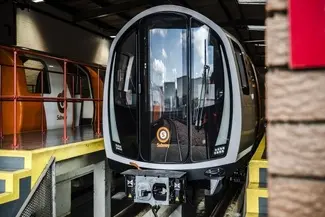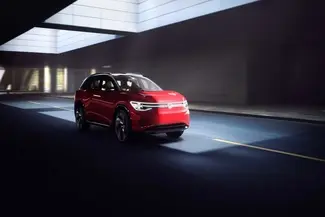European Automakers Concerned That Electric Cars Will Erode Profits, Report Says
Automakers are introducing more electric cars in response to anticipated emissions rules, but some companies are concerned these new models won't be profitable, reports Reuters. Electric cars still cost more to produce than internal-combustion models, and automakers are wary of passing that extra cost on to customers, the report says.

Automakers are introducing more electric cars in response to anticipated emissions rules, but some companies are concerned these new models won't be profitable, reports Reuters. Electric cars still cost more to produce than internal-combustion models, and automakers are wary of passing that extra cost on to customers, the report says.
"What everyone needs to realize is that clean mobility is like organic food—it's more expensive," PSA Group CEO Carlos Tavares said in a radio interview. He pointed to a September 25 profit warning by BMW, partly blamed on electrification and stricter emissions rules, as "a first alarm signal," adding that "either we accept paying more for clean mobility, or we put the European auto industry in jeopardy."
Tavares previously said the French automaker will be "100 percent electrified" by 2025, offering hybrid or all-electric versions of every model, but possibly keeping some internal-combustion powertrains in the lineup as well. PSA's DS brand will sell only electric cars and hybrids beginning in 2025.
Volkswagen will price its upcoming I.D. electric car close to the current Golf, according to Reuters. That means the car will be sold at a loss, predicts Laurent Petizon, managing director of consulting firm AlixPartners. Petizon explains VW may prefer to sell electric cars at a loss rather than pay future penalties for emissions-rules violations. The German automaker plans to sell multiple I.D.-family electric models based on a new platform called MEB, part of a push to launch 50 all-electric models across multiple brands by 2025.
Economies of scale should lower production costs as automakers build more electric cars, but shortages of cobalt and other metals needed for lithium-ion batteries may counteract that, the Reuters report noted. In the meantime, electric cars account for a tiny fraction of overall new car sales due to a number of factors, including consumer unfamiliarity, half-hearted marketing attempts by manufacturers, and lack of charging infrastructure. Analysts told Reuters they believe automakers are primarily developing electric cars for regulations, not consumer demand.
China, the world's largest new car market, is expected to enact stricter emissions standards over the next few years. Several European countries have discussed ending sales of gasoline and diesel cars in the coming decades. California will likely continue to push for more zero-emission vehicles, assuming the federal government doesn't take away the state's ability to set its own emissions standards.















![AIRBUS A380 [MORE THAN 600 PASSENGER’S CAPACITY PLANE]](https://cdn.tinn.ir/thumbnail/4jCp4EQvCU0b/IjHVrSYQrIAqIzXuTzADR7qLYX4idQT4nfq__26E5SCUPLMqfhWkWajvuO9Wfq1ql1TjV4dhkrHliNQU82kMpo2NNftT_NGEwHc9KXtN_rk731bmifa2IQ,,/airbus-a380-structure1.jpg)

Send Comment